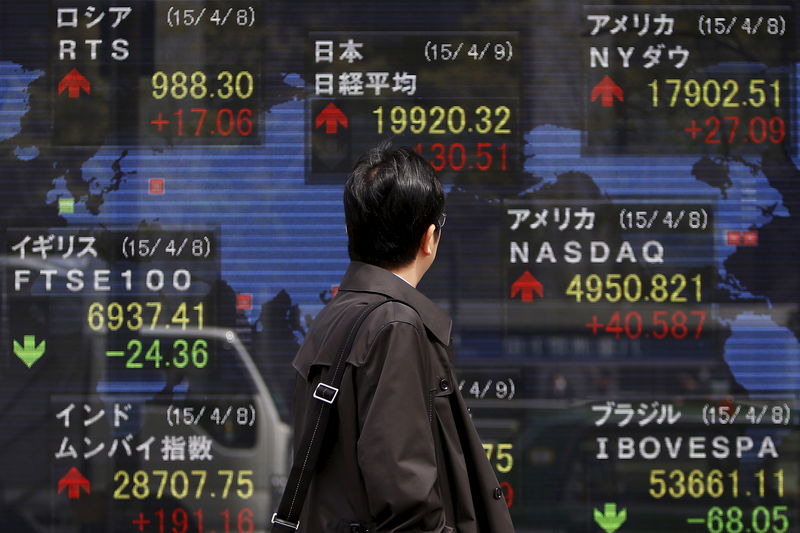This post was originally published on this site
https://i-invdn-com.investing.com/news/LYNXMPEB380HB_M.jpg
Investing.com – Asia Pacific stocks were mostly up on Friday morning, with investors balancing better-than-expected corporate earnings against the inflation risks that continue to plague the global economy.
Japan’s Nikkei 225 jumped 1.33% by 10:18 PM ET (2:18 AM GMT) and South Korea’s KOSPI rose 0.77%.
In Australia, the ASX 200 rose 0.56%.
Hong Kong’s Hang Seng was up 0.28%, with markets re-opening after a holiday.
China’s Shanghai Composite inched down 0.08% and the Shenzhen Component was down 0.37%, as the People’s Bank of China added enough medium-term funds to keep financial-system liquidity at existing levels.
In the U.S., the S&P 500 had its best day since March 2021, boosted by better-than-expected results from major banks, while the benchmark 10-year Treasury yield held a decline.
Goldman Sachs Group Inc. (NYSE:GS) will report its earnings later in the day.
Although the solid company earnings so far have helped calm inflation fears, a wider debate about whether a stagflation-like backdrop is imminent continues amid continuing surges in energy prices and supply-chain bottlenecks.
“We’re likely going to continue to see this elevated inflation and probably well into 2022,” Wealth Enhancement Group senior vice president Nicole Webb told Bloomberg. The Fed will likely begin asset tapering in November 2021 and will likely begin interest hike discussions earlier than expected.
U.S. data also showed that the producer price index rose 0.5% month-on-month in September, while a lower-than-expected 293,000 initial jobless claims were filed throughout the week. Further data, including retail sales as well as the University of Michigan consumer sentiment and Michigan consumer expectations indexes, is due later in the day.
Meanwhile, Brian Moynihan, CEO at Bank of America Corp. (NYSE:BAC), joined finance industry peers including Goldman Sachs’s John Waldron and Morgan Stanley (NYSE:MS) CEO James Gorman in predicting that inflationary pressures are likely to persist.
“Inflation is clearly not temporary. The Fed is starting to indicate that it is time for them to move as the path out of COVID-19 is more assured,” Moynihan told Bloomberg.
In commodities, crude oil climbed and base metals soared as European smelters became the latest casualties in the global energy crunch.

